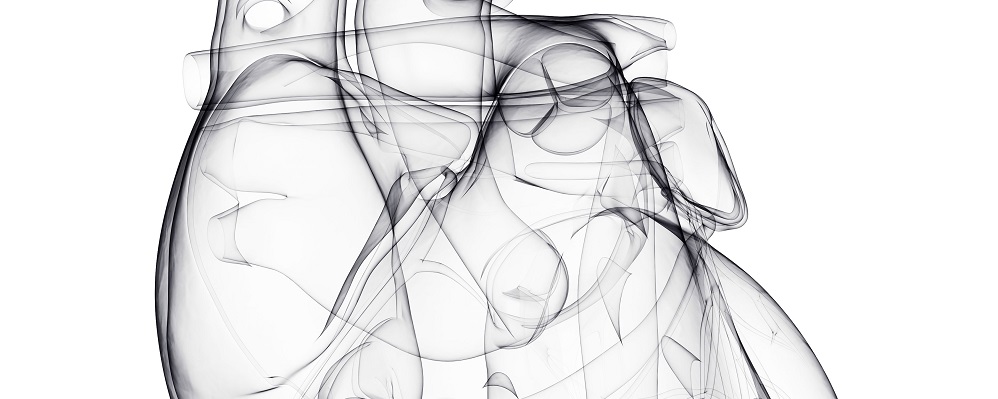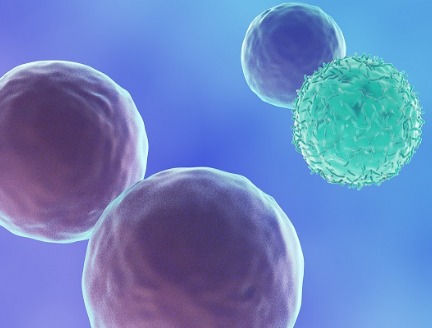


Restorative Medicine
Cellular Insights into High Cholesterol
The link between cholesterol and spikes in white blood cell counts

The landmark study identified a new regulatory mechanism responsible for the increase in white blood cells seen in people with high levels of low density lipoprotein (LDL).
In a landmark study, scientists at the Houston Methodist Research Institute discovered what makes white blood cell counts spike in individuals who have high cholesterol, possibly leading to new therapies for heart disease.
Led by Longhou Fang, PhD, and postdoctoral fellow Qilin Gu, PhD, in the Center for Cardiovascular Regeneration, the team looked at hypercholesterolemia, the type of high cholesterol that causes very high levels of low density lipoprotein (LDL)–the so-called “bad” cholesterol–to circulate in the blood.
They identified a new regulatory mechanism responsible for this increase in white blood cells typically seen in people with these high LDL levels, which increase a person’s risk for cardiovascular disease, the leading cause of morbidity and mortality in the U.S. and globally.

Longhou Fang, PhD, (left) and postdoctoral fellow Qilin Gu, PhD, led the team that linked spikes in white blood cell counts to high cholesterol.
The mechanism we identified activates a protein called SREBP2 that in turn leads to the development of more hematopoietic stem cells (HSPCs), which are the precursors to white blood cells and the process by which all mature blood cells are produced. We were able to show that targeting this protein using its antagonist can reduce the HSPC counts to bring down the white blood cell counts. This insight may lead to a new strategy to treat atherosclerotic cardiovascular disease.

Longhou Fang, PhD
Associate Professor of Cardiovascular Sciences
Center for Cardiovascular Regeneration
Houston Methodist
Additionally, Fang says finding this new pathway that controls the generation of HSPCs could be useful for treating blood disorders, such as leukemia and anemia in the future. For instance, he says the plant-derived drug betulin, which is an SREBP2 inhibitor, could possibly be repurposed to mitigate the progression of leukemia. Even further down the line, he said this also holds promise for bone marrow regeneration using patient-derived hematopoietic stem cells, which would eliminate the need to find a donor.
Initially appearing in the journal Science, the study has since been cited by Nature Reviews Cardiology, and an editorial in The New England Journal of Medicine states, “The most notable aspect of the study… is the implication of ‘cholesterol metabolism’ genes in the biologic makeup of HSPCs. These findings provide support for the hypothesis that cholesterol metabolism is a driver of inflammation in cardiovascular disease.”
Fang and his colleagues say their next steps are to continue exploring the role of cholesterol metabolism in hematopoiesis, saying that their findings bring them one step closer to their ultimate goal of generating patient-oriented HSPCs, which will be essential for the progress of regenerative and precision medicine.
Gu Q, Yang X, Lv J, Zhang J, Xia B, Kim JD, Wang R, Xiong F, Meng S, Clements TP, Tandon B, Wagner DS, Diaz MF, Wenzel PL, Miller YI, Traver D, Cooke JP, Li W, Zon LI, Chen K, Bai Y & Fang L. AIBP-mediated cholesterol efflux instructs hematopoietic stem and progenitor cell fate. 2019 Mar 08, Science, Vol. 363, Issue 6431, pp. 1085-1088. DOI: 10.1126/science.aav1749
This work was supported by grants from the National Heart, Lung and Blood Institute (HL114734, HL132155, HL135737, HL133254), the American Heart Association (16BGIA27790081, 18TPA34250009, 17POST33410671), the National Institutes of Health (HL04880, DK49216, K01DK092365, R01DK111599, CA204468, GM125632), and the Cancer Prevention and Research Institute of Texas (RP110776, RR160083, RP120348, RP170002).
Lisa Merkl, June 2019








